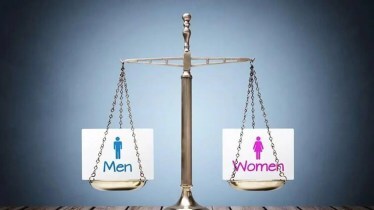A global average of 68 percent agree there is inequality between men and women in terms of social, political, and economic rights in their country, revealed a global studyconducted by Ipsos in collaboration with the Global Institute for Women’s Leadership at King’s College London for International Women’s Day.
According to the study, most countries across Asia witnessed inequality between men and women in terms of social, political, and economic rights. In India, 81 percent people seconded it, which is followed by Malaysia (76 percent), Thailand (75 percent), Australia (71 percent), South Korea (71 percent), Indonesia (70 percent), Singapore (63 percent), China (63 percent) and Japan (61 percent).
Globally, on average 64 percent people are of the view that women won’t achieve equality in their country unless men take action to support women’s rights. Asian countries also expressed similar views higher than the global average, led by Indonesia (82 percent), India (73 percent), Malaysia (71 percent), Australia (84 percent), Singapore (62 percent), China (61 percent), Thailand (61 percent), South Korea (55 percent) and Japan (50 percent).
Around 62 percent of the global population expressed their views that people can personally take actions to help promote equality between men and women, it said. Most Asian countries endorse this view including China (78 percent), India (78 percent), Thailand (75 percent), Malaysia (73 percent), Indonesia (71 percent), Singapore (65 percent) and Australia (59 percent).
More than 55 percent of people across the world are of the opinion that equality between men and women will be achieved in their lifetime. In Asian markets, Thailand appeared the most optimistic as 80 percent of its population expressed their views that gender equality would be achieved in long course), followed by China (76 percent), India (74 percent), Malaysia (68 percent), Singapore (61 percent), Indonesia (56 percent), and Australia (50 percent).
The Ipsos study revealed that people around the world phrased out their opinion that young people will have a better life than their parents’ generation – although a larger proportion feel optimistic about the future of young women (51 percent global country average) than for young men (42 percent). In Asian countries, it was underlined that young people will have a better life than their parents, which was seconded by 69 percent in China, followed by India (63 percent), Singapore (62 percent), Indonesia (59 percent), Australia (57 percent), Thailand (56 percent), South Korea (59 percent) and Malaysia (49 percent).
Asked if gender equality mainly benefits women, mainly benefits men, or is good for both men and women, half of the global population ( around 53 percent) say it is good for both genders, with a further 18 percent saying it mainly benefits women. According to the finding of the study, Asian people believe that both men and women get benefits from gender equality – especially among citizens of Indonesia (71 percent), China (68 percent), Thailand (65 percent), Singapore (62 percent), Australia (56 percent), Malaysia (56 percent) and India (50 percent).
Ipsos APAC CEO Hamish Munro said: “Every year on International Women’s Day all countries take stock of how they are performing in promoting gender equality. Our survey findings show there is still a lot to be done to foster a conducive environment for gender equality.”
“Ipsos celebrates women and men. We celebrate our differences and make all employees comfortable in who they are. As the best place to work in the industry, we have embedded diversity and inclusion in the business where all of us belong at Ipsos and have equal access to opportunities,” says Ipsos APAC HR Director Ena Rivera.
